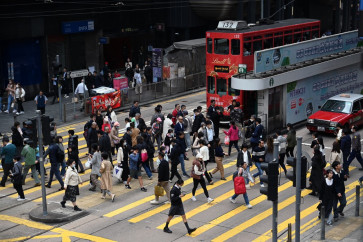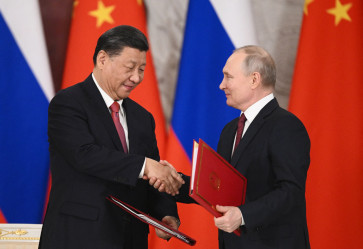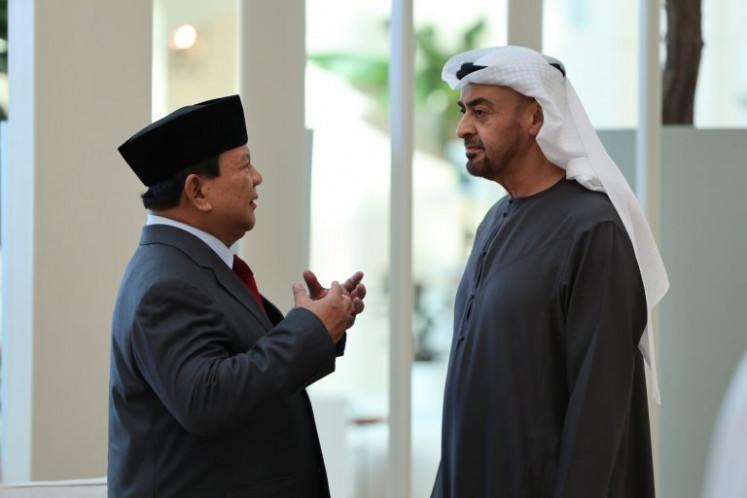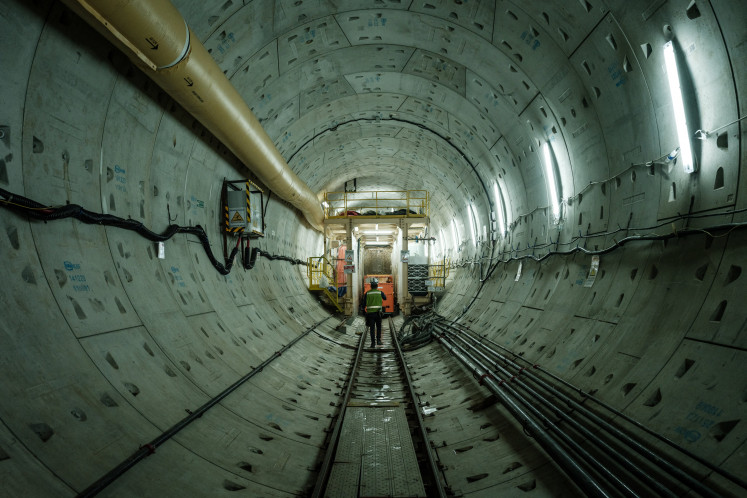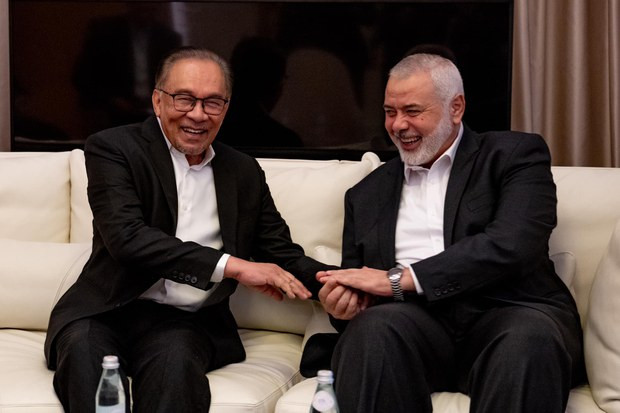ASEAN must open up: Jokowi
Meet the press: President Joko “Jokowi” Widodo (third right) talks to chief editors of newspapers from across the ASEAN region at the State Palace in Jakarta on Tuesday
Change Size

M
span class="inline inline-center">Meet the press: President Joko “Jokowi” Widodo (third right) talks to chief editors of newspapers from across the ASEAN region at the State Palace in Jakarta on Tuesday. The editors were in Indonesia to attend the The Jakarta Post’s 33rd anniversary, which was celebrated on Monday.(Courtesy of Setpres/Intan Andriani)
The key to progress and region-wide growth in ASEAN is for all member states to commit to reform and market liberalization, said President Joko “Jokowi” Widodo.
Responding to questions from journalists representing major ASEAN member states on whether Indonesia could exercise leadership in ASEAN, Jokowi said the current global economic slowdown could be the impetus for imposing economic reforms.
“For me there are two groups of countries [in ASEAN]: those that want reform and those that don’t want reform. Indonesia certainly wants reform,” Jokowi said after a luncheon at the State Palace on Tuesday.
At least 13 editors-in-chief of ASEAN media companies met with Jokowi on Tuesday to discuss regional media collaboration efforts in a bid to help foster an ASEAN identity.
Later in his remarks, Jokowi said that openness and competition have become the two guiding principles adopted by his government to ensure that Indonesia can take full advantage of the globalized economy.
Jokowi asserted that it was no longer realistic for any country to be closed-minded, saying that “technology [had] made the world smaller and social media [had] made the world faster”.
On the issue of competition, Jokowi said that exposing different sectors to increased competition would benefit the country in the long run.
On the question of regionalism, Jokowi said integration with other economic blocs was now the order of the day and no one ASEAN member state could close its border to such cooperation.
“But economic [cooperation] must bring prosperity to our people. ASEAN is in a new era, the era of the economic community,” he said.
To this end, the President suggested that the ASEAN community be ready to strengthen relations with other regions, especially now that the global economy was experiencing a slowdown.
With Indonesia currently representing 45 percent of the region’s GDP, in addition to housing ASEAN’s largest working-age population, Jokowi pledged that Indonesia was ready to become “the gateway to ASEAN” so that its regional neighbors could engage in talks on further expanding free trade agreements.
According to 2015 data from the ASEAN secretariat, the GDP of the entire region stands at US$2.57 trillion.
Trade Minister Thomas T. Lembong said earlier on Monday that the government was aiming to secure its Comprehensive Economic Partnership Agreement (CEPA) with the EU within a year, which will force various national standards to be upgraded to European levels.
During a panel discussion commemorating the 33rd anniversary of The Jakarta Post, Thomas also defended the government’s openness to the possibility of Indonesia entering into the Trans-Pacific Partnership (TPP).
The minister said Indonesia would pursue in the interim the EU CEPA as well as an Australian CEPA, which he was optimistic about securing in the next 12 to 18 months.
“We’ve gone on record saying that the top priority is to get the CEPA with the EU. Jokowi has made it an official Cabinet decision and has given me a deadline of two years,” he said on Monday evening.
Meanwhile, former trade and industry minister Mari Elka Pangestu argued that the ASEAN Economic Community, which became active at the beginning of the year, remained underutilized, citing low utilization rates of lowered trade tariffs, both within the region and with key partners.
“Within the region the rate is 50 percent while with China, for example, it is 20 to 25 percent,” she said during a speech on Monday.
In his remarks on Monday, Thomas said that to lead ASEAN, Indonesia required a strong vision and a real drive to make economic integration happen on the regional level. “But if anyone can do it, it’ll be President Jokowi,” he said.
________________________________
To receive comprehensive and earlier access to The Jakarta Post print edition, please subscribe to our epaper through iOS' iTunes, Android's Google Play, Blackberry World or Microsoft's Windows Store. Subscription includes free daily editions of The Nation, The Star Malaysia, the Philippine Daily Inquirer and Asia News.
For print subscription, please contact our call center at (+6221) 5360014 or subscription@thejakartapost.com

